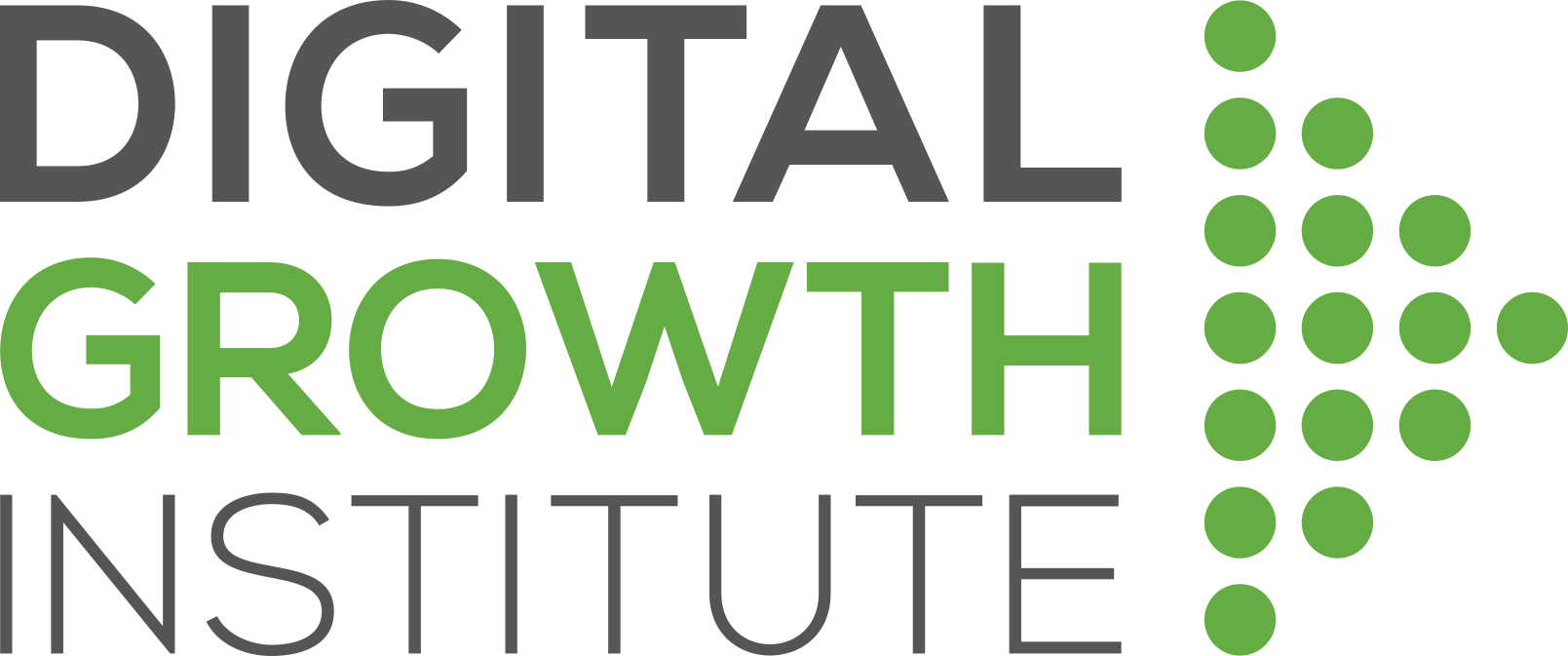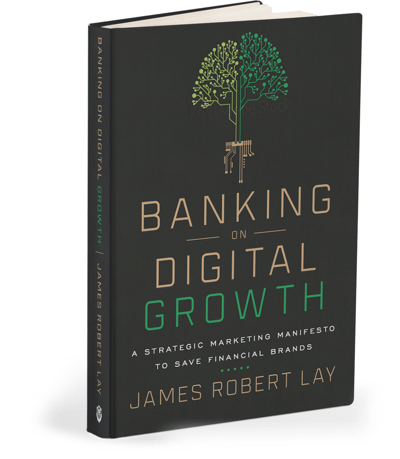In our journeys of growth, be it personal or professional, fear often takes center stage. It's the fear of the unknown, change, failure, or even success that can hold us back. However, transforming these fears into opportunities can propel us towards our goals. I had the chance to sit down with James Robert Lay on an episode of the 'Banking on Digital Growth Podcast', where we discussed how to turn fear into opportunities, inspired by Napoleon Hill's transformative book, "Outwitting the Devil".
Though not as well-known as his classic, "Think and Grow Rich", this lesser-known book, first written in 1938 but not published until 2011 due to its controversial nature, can be a beacon of light for those confronting the exponential confusion, complexity, and conflict that are all too common in today's world of rapid change.
The top 3 insights from this article:
- Fear at a subconscious level: Fear, often instilled in us from childhood through religious teachings and educational institutions, can deeply impact our lives. This fear of failure and making mistakes can lead to conservative thinking and limit our creativity and independence.
- From fear to faith: To break free from the cycle of fear, it's crucial to consciously shift towards faith and optimism for the future. This requires self-awareness, allowing us to embrace personal and professional growth and tackle challenges with the right mindset.
- The importance of purpose and goals for you and your account holders: Defining a clear purpose and setting goals is essential for avoiding aimlessness and drifting. Having a greater purpose provides focus and direction, empowering individuals to take actionable steps towards achieving their desired outcomes.
Understanding Fear at a Subconscious Level
The lessons from "Outwitting the Devil" can help financial brand leaders guide their account holders beyond financial fears that trap them in cycles of scarcity or debt. These insights can lead them towards a future brimming with hope, opportunity, and abundance.
During the podcast, we also had a candid conversation about our personal experiences with fear. As a child, I was scared of many things, including the fear of failing or embarrassing myself at school. This fear kept me from fully enjoying my school years. However, as I grew older, I realized that these fears were holding me back from taking risks and exploring new and better opportunities.
James Robert, on the other hand, confessed that he was terrified of death as a child. This fear was tied to the environment he was exposed to, including the constant media reports about death and dying.
Fear - a pervasive emotion instilled in us from childhood - impacts our lives. Our early experiences, educational institutions, and religious teachings often embed this fear into us at a subconscious level, shaping our perceptions and responses in ways we may not even realize.
This pattern, often linked to a fear of failure and of doing the wrong thing, pushes us to be conservative in our thinking and, unfortunately, limits our creativity and ability to think independently.
The Shift from Fear to Faith and Exploring Growth Opportunities
To break free from this cycle, we must consciously make the shift from fear to faith. This isn't about adopting religious beliefs, but rather, choosing to foster personal and professional growth grounded in trust and optimism for the future.
Such a shift isn't always easy. It requires a high level of self-awareness and constant reflection.
But the payoff is worth it: mental and spiritual freedom, the courage to explore and innovate, and a journey towards achieving greater purpose.
Fear can be a significant barrier to realizing our full potential. It often prevents us from exploring growth opportunities, inhibits our creativity, and undermines our critical thinking abilities. The resulting complacency and lack of direction in our lives is what Napoleon Hill refers to as "drifting."
Hill defines drifting as the state of aimlessness, indecision, and lack of definiteness of purpose in a person's life. He describes it as the opposite of purposeful action and being driven towards a specific goal. When someone is drifting, they lack a clear plan or direction, allowing external circumstances and influences to dictate their course in life.
Mastering Your Mind and Embracing Purpose
In the book, Hill engages in a unique dialogue with the Devil himself, putting the enigmatic figure on trial. The philosophical nature of the book leaves readers to ponder the nature of the Devil and the depths of their own minds.
Is the Devil an external entity or an internal force?
Who is this Devil that Hill writes about?
While we may never know for certain, Hill's metaphorical exploration prompts us to examine our own negative energies and the importance of mastering our minds.
Our minds and mindsets are the one aspect of our lives over which we have complete control and agency. While we cannot control external circumstances or the changes that occur around us, we hold the power to choose how we respond, react, and internalize these events.
This concept is beautifully illustrated in Ryan Holiday's book, "The Obstacle Is the Way," which emphasizes the transformative power of shifting from a negative to a positive mindset.
Related Content: The Obstacle Is the Way: Take Back Control of Your Narrative
Regardless of the uncontrollable events we encounter, it is up to us to decide whether we allow them to cripple us or view them as opportunities for growth.
Chaos, uncertainty, and complexity are constants in our lives. History has shown that we will always face difficult situations and circumstances beyond our control. Therefore, it becomes crucial to make a commitment to approach these challenges with the right mindset.
By focusing on our individual commitment and mindset first, we create a ripple effect that can extend to our teams, organizations, and communities. As leaders, we must recognize the power of leading ourselves before leading others, especially in the age of AI, where mastering our minds becomes an essential skill.
The Importance of Purpose and Goals for You and Your Account Holders
One of the key recommendations Hill makes in mastering our minds is to have a defined purpose. Setting a purpose that is greater than ourselves provides us with something to work towards and helps keep us disciplined and focused.
Without a purpose or goal, we may find ourselves adrift, lacking direction and clarity. Defining our purpose allows us to set actionable steps and make decisions aligned with our goals, ultimately shaping the outcomes we desire.
It is surprising to learn that a significant portion of people either lack defined goals or fail to revisit them regularly. This absence of clarity can hinder personal and professional growth.
In the realm of financial services, leaders have an incredible opportunity to guide account holders in gaining clarity about their futures. By providing platforms for exploration and discussion, financial institutions can empower individuals to envision their financial goals and set a course towards achieving them.
The Power of Environment in Transformation and Growth
As humans, we are constantly undergoing various forms of transformation, whether it's physical fitness, digitalization, or financial well-being. Hill's insights on our environment shed light on how our surroundings impact our mindset, paving the way for either growth or fear.
By examining our relationships and investing time with growth-minded individuals, we can create an environment conducive to personal and collective development.
When evaluating our environment, one of the first factors to consider is the company we keep.
Are we surrounded by people who positively influence us, support us, and inspire us to become better versions of ourselves?
It may sound cliché, but as Jim Rohn famously said, "You are the average of the five people you spend the most time with."
The relationships we cultivate, both personally and professionally, can either drain us or propel us forward. Recognizing the impact of these relationships empowers us to be more intentional in choosing those who uplift and challenge us.
Furthermore, when we surround ourselves with like-minded individuals committed to a cause greater than the present moment, we tap into an exponential multiplier effect. This amplification of ideas, perspectives, and experiences propels us further on our journey of growth.
Community-building initiatives, such as formalizing networks and fostering collaboration, create opportunities for continuous learning and mutual support.
Related Content: Citizenship Leads to Ownership: Finding Community in a Networked World
But it’s not just the people we surround ourselves with, but also the content we consume, the places we frequent, and the practices we engage in regularly.
Hill also emphasized the importance of feeding our minds with positive, enriching content. This means engaging with books, films, music, and media that inspire us, teach us, and propel us towards our goals.
In a world that feels like an ever-growing uncertainty, mastering our minds and cultivating a growth-centric environment are key to navigating the chaos. These tools not only help us grow as individuals but also equip us to lead others effectively, inspire transformation in our communities, and make meaningful contributions to the world.
Tackling the Four Fears That Hold Us Back
The fears we've touched upon, of the unknown, of change, of failure, and of success, are powerful barriers. But understanding them and applying the strategies we've discussed can help dismantle these barriers.
It's essential to remember that fear is an emotion and it's natural to experience it. However, letting it rule your decision-making process could be detrimental to your growth and your future.
All these fears are interconnected, and it's okay to experience them. The problem arises when we allow these fears to limit us, to restrict our vision of the future. The question we need to ask ourselves is whether we are building a foundation for future growth on fear, or if it's built on faith and confidence that the future will be brighter than it is today.
For more about financial transformation, reach out to James Robert Lay at the Digital Growth Institute.
This article was originally published on July 21, 2023. All content © 2024 by Digital Growth Institute and may not be reproduced by any means without permission.





